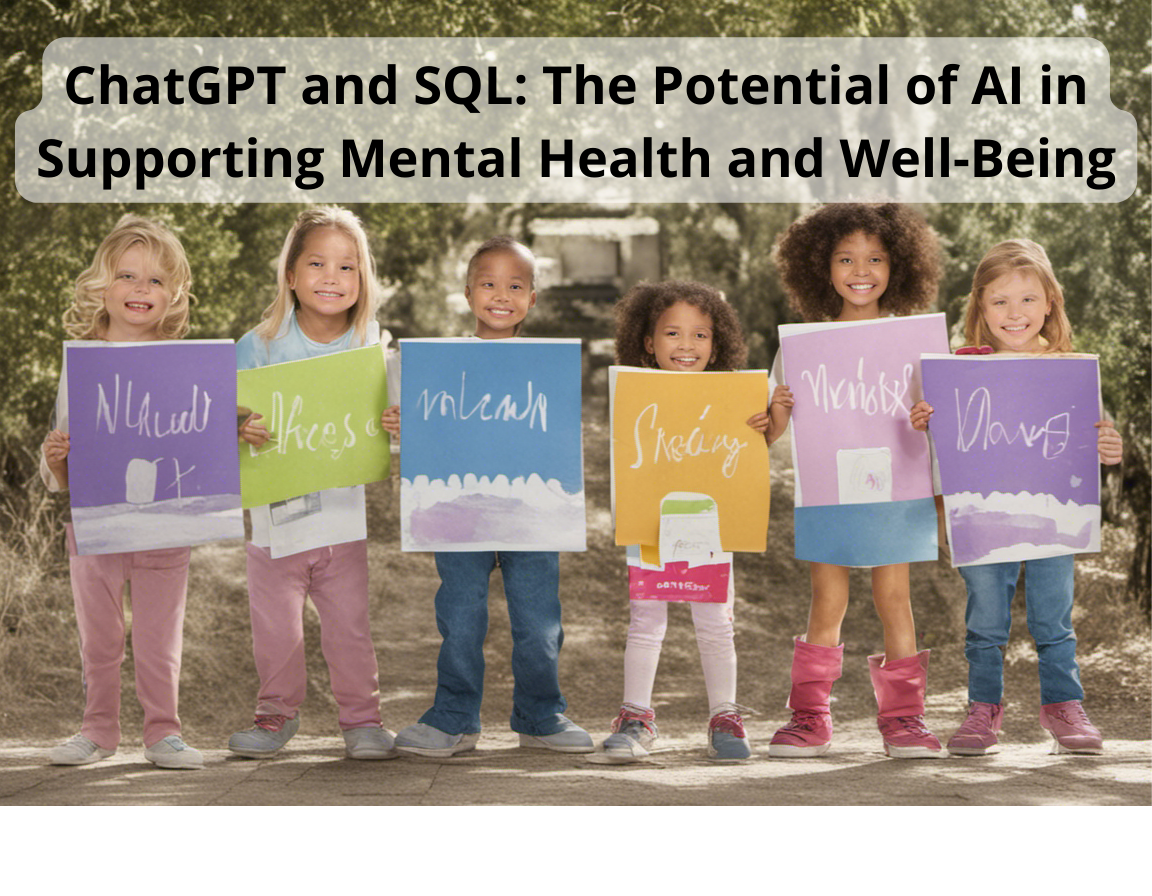
As the world grapples with the ongoing mental health crisis, exacerbated by the COVID-19 pandemic, AI-powered tools like ChatGPT and SQL are emerging as promising solutions to bridge the gap between demand and availability of mental health services. By offering innovative ways to provide support, these technologies have the potential to transform the mental health landscape and improve well-being for millions of people worldwide.
ChatGPT, or Chatbot Generalized Pre-trained Transformer, is an AI language model developed by OpenAI. It has gained attention for its ability to generate human-like text based on the input it receives. This makes it an ideal candidate for developing chatbots that can provide mental health support to individuals in need. With its advanced natural language processing capabilities, ChatGPT can understand and respond to users’ queries and concerns in a conversational manner, offering empathy and guidance similar to a human therapist.
One of the key advantages of using AI-powered chatbots like ChatGPT in mental health support is their ability to provide immediate assistance. Traditional mental health services often have long waiting times, which can be detrimental to individuals in need of urgent help. Chatbots can be available 24/7, ensuring that users have access to support whenever they need it. Moreover, chatbots can handle multiple conversations simultaneously, making them a scalable solution to address the growing demand for mental health services.
Another significant benefit of AI-driven mental health support is the potential for increased accessibility. Many people, particularly those in low-income communities or remote areas, face barriers to accessing mental health services due to financial constraints or lack of available professionals. Chatbots can be accessed through smartphones or computers, making them a cost-effective and easily accessible alternative to traditional therapy. This can help bridge the gap in mental health care and reach underserved populations.
In addition to ChatGPT, SQL, or Structured Query Language, is another AI technology that can contribute to improving mental health support. SQL is a programming language used to manage and manipulate databases. It can be employed to analyze large amounts of data related to mental health, such as patient records, therapy session transcripts, and research findings. By analyzing this data, AI algorithms can identify patterns and trends that can help inform more effective treatment strategies and interventions.
For instance, SQL can be used to analyze data from wearable devices that track users’ physical and emotional states. By identifying correlations between these states and mental health outcomes, AI algorithms can provide personalized recommendations for self-care and coping strategies. Furthermore, the analysis of therapy session transcripts can help identify common themes and issues faced by patients, enabling therapists to better understand their clients’ needs and tailor their approach accordingly.
Despite the potential benefits of AI in mental health support, it is important to address concerns related to privacy and ethical considerations. Ensuring that sensitive data is handled securely and that AI algorithms are designed to avoid biases and discrimination is crucial for the successful implementation of these technologies in mental health care.
In conclusion, AI-powered tools like ChatGPT and SQL hold great promise in revolutionizing mental health support. By offering immediate, accessible, and personalized assistance, these technologies can help address the growing demand for mental health services and improve well-being for millions of people worldwide. As we continue to explore the potential of AI in mental health care, it is essential to prioritize privacy and ethical considerations to ensure that these innovations truly benefit those in need.
